You would hope that the moment you agree to marry someone, they will always be there for you when you need it.
But as Reddit user Capital_Manager_7070‘s story shows, getting engaged does not guarantee a happily ever after.
In her candid post, the woman explained that her future in-laws started insisting on the couple making changes to their wedding, and everything culminated in them pressuring her to wear another dress. One they had picked for her.
What hurt the bride the most, however, was that her fiancé took a back seat in all of this.

Image credits: Unai82 / Envato (not the actual photo)
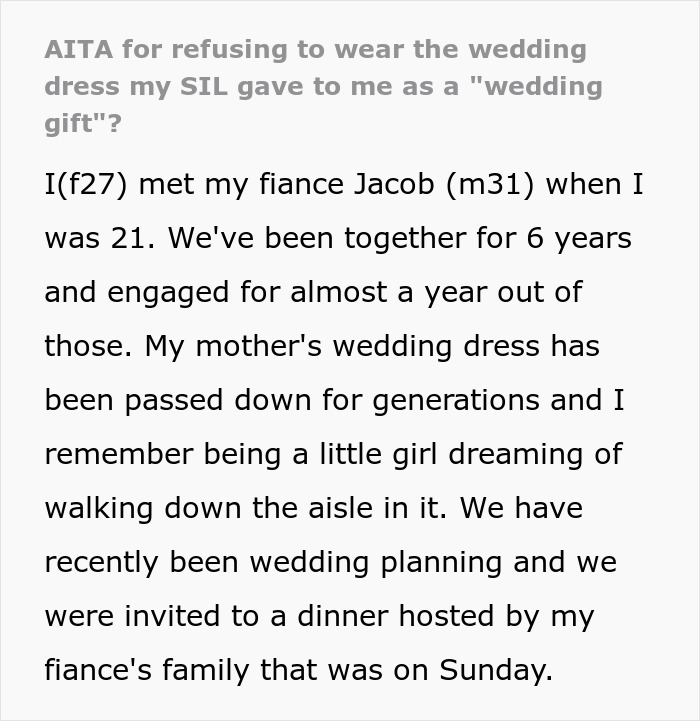


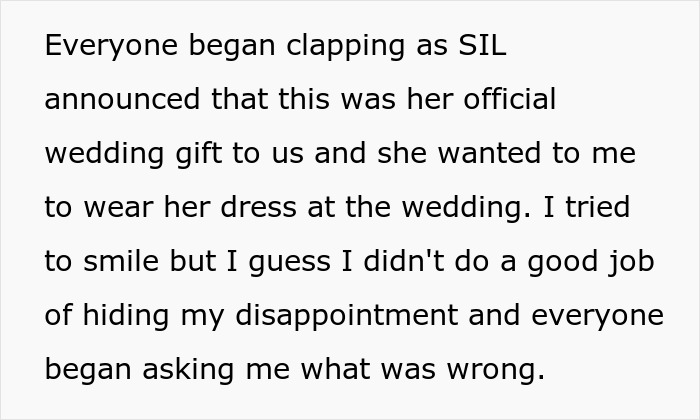




Image credits: Pressmaster / Envato (not the actual photo)
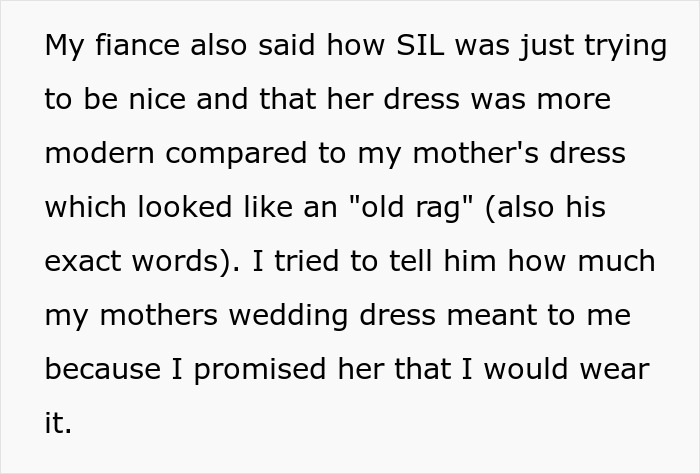
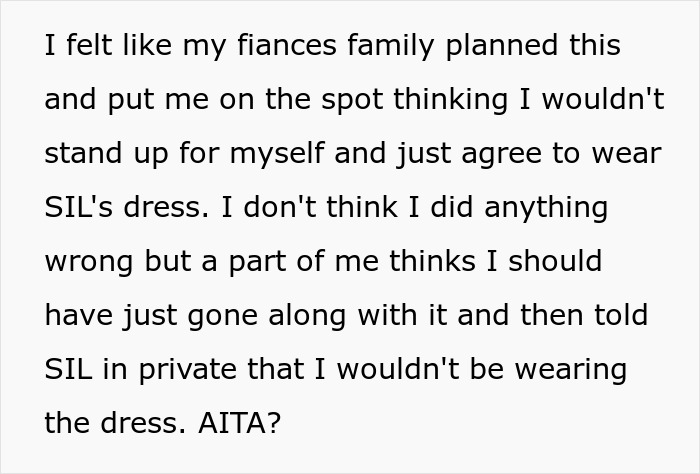
Image credits: Capital_Manager_7070
The groom didn’t stand up for his bride

Image credits: Scott Webb/Pexels (not the actual photo)
“You want [your partner] to feel as though their heart is safe with you; that you will take care of them and have their back,” said Jessica Higgins, Ph.D, a psychologist and relationship coach who specializes in helping couples break free from negative and destructive patterns.
But when the woman’s fiancé talked so negatively about her, he did the exact opposite.
“When someone talks kindly and favorably about us, we typically stand up straighter and feel called to higher character,” Higgins added. “When someone speaks negatively about us, we tend to feel hurt, angry, defensive, and resentful.” She has often heard partners say: “If you are going to call me a jerk, I am going to act like one.”
Furthermore, complaining about your partner to others influences how people perceive them. For example, if a man were to criticize his bride to his parents on a regular basis, this could set them up for having a bad opinion of her instead of forming one for themselves.
Most people who read her story said the woman did nothing wrong








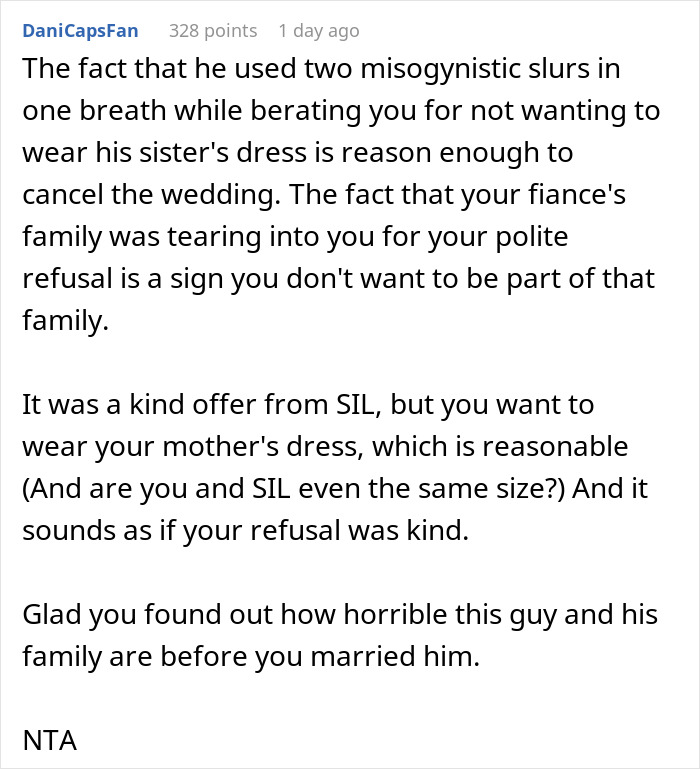

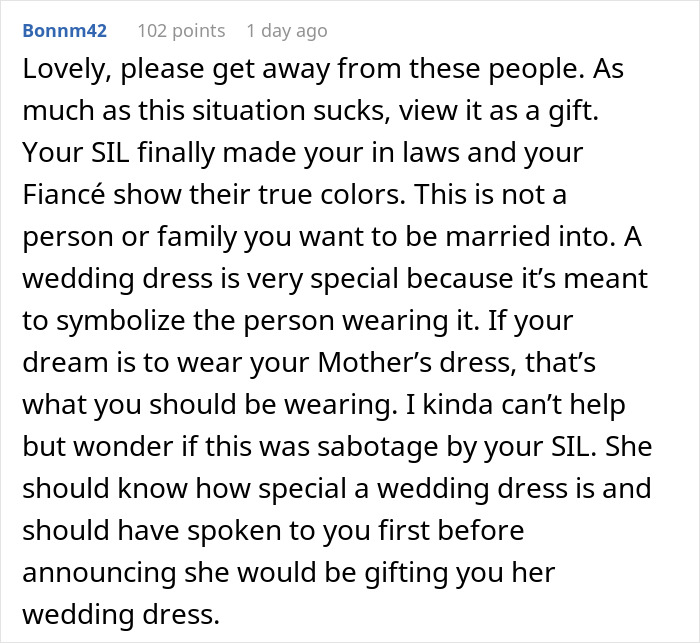



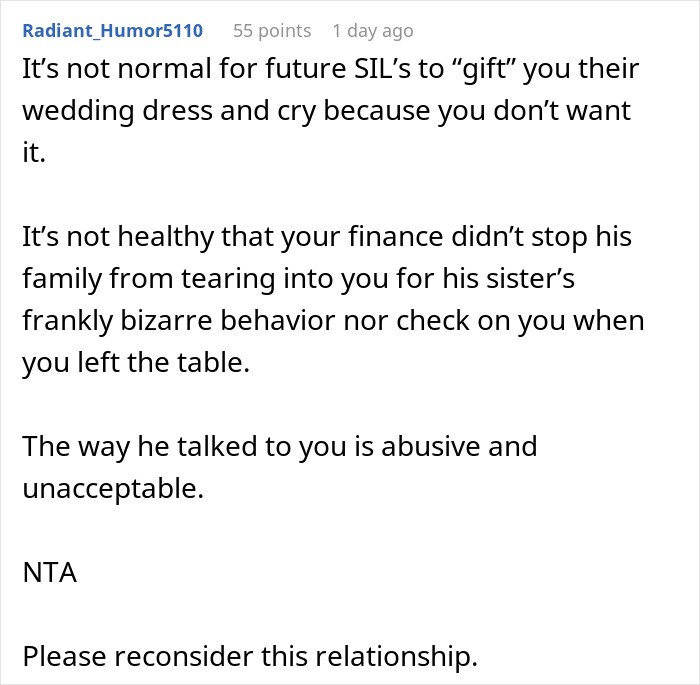
But a few did think she could’ve handled the situation better
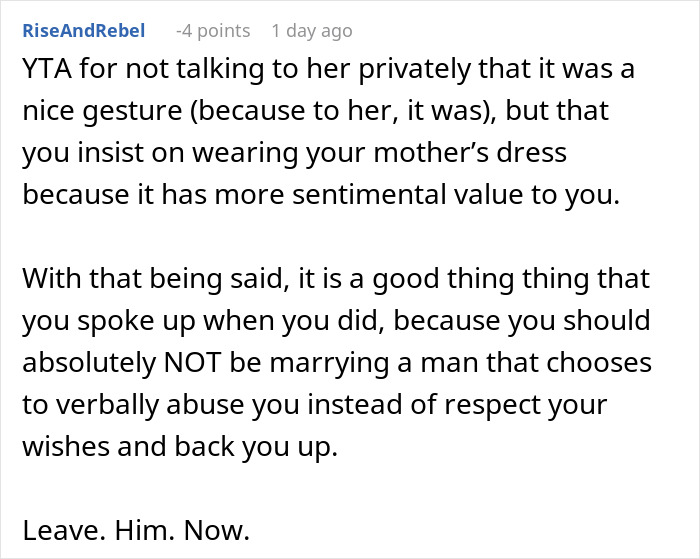

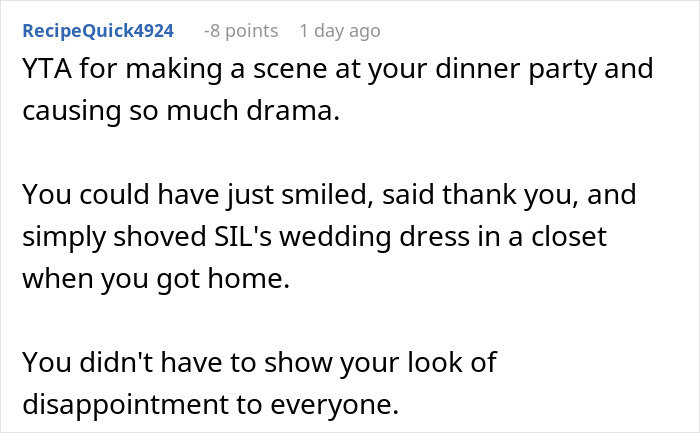

Not long after, she provided an update on the conflict

Image credits: Prostock-studio / Envato (not the actual photo)









Which was a reminder that “money talks”

Image credits: mariiaplosh / Envato (not the actual photo)
Today, more people are financing their own weddings. According to a recent survey by The Knot, on average, parents contribute to 51% of the budget, while the couple takes care of the remaining 49%.
In this case, we can’t ignore that the groom’s family has covered 75% of the expenses. “Brides should remember to take care to be effusive if someone else is paying for their wedding,” said East Coast event expert Rebecca Gardner. “You have to honor their part in the wedding.”
In a perfect world, that doesn’t become anything grand. For example, it can reflect on the invitation with something like: “Mr. and Mrs. X request the honor of your presence at the wedding of their son Y to…”
However, when folks are helping to significantly foot the bill, there’s always a chance they might insist on their way rather than the couple’s. (If people can foresee that happening, they may want to consider taking care of the expenses themselves. Even if you ultimately end up scaling back the festivities, your peace of mind is often worth much more.)
That’s why Landis Bejar, a therapist and the founder of AisleTalk, a service that provides therapy specific to wedding planning, believes it’s important to have a budgeting conversation upfront so you have a clear idea of the situation. “Start by talking openly about what it means to contribute financially to a wedding,” she explained.
“Ask your parents directly about their expectations for how much power and control they expect to have in decision-making as the ones paying for the event. Whether the expectation is that they have a say in all things, nothing, or some things, you want to know this ahead of time and try to have the conversations early before more emotions get invested,” she added. “Chances are, they haven’t even thought about this consciously. By asking directly, you’re giving everyone involved a chance to reflect on how they would ideally like this process to look, rather than ending up in an unanticipated, financially-motivated power struggle—which isn’t enjoyable for anyone.” But of course, it’s easy for us to talk after the fact. Hindsight is 20/20.
The main element that seemed to be missing throughout this period was a clear acknowledgment of the groom’s steadfast support for the bride.
Eventually, she decided to call the whole thing off


Image credits: Capital_Manager_7070
Man Defends Sister After Fiancée Refuses To Wear Her Wedding Dress, Ends Up Single Bored Panda






